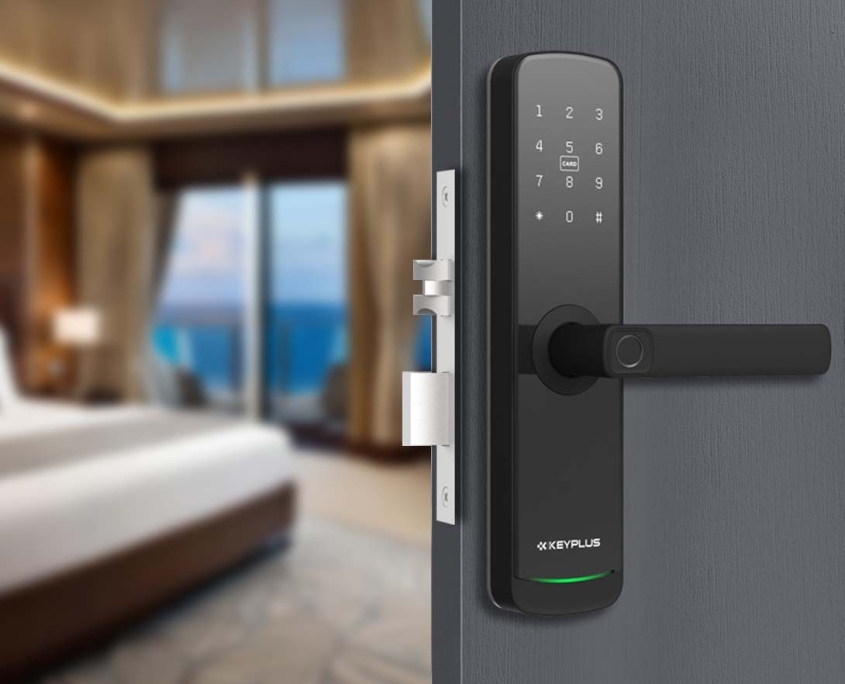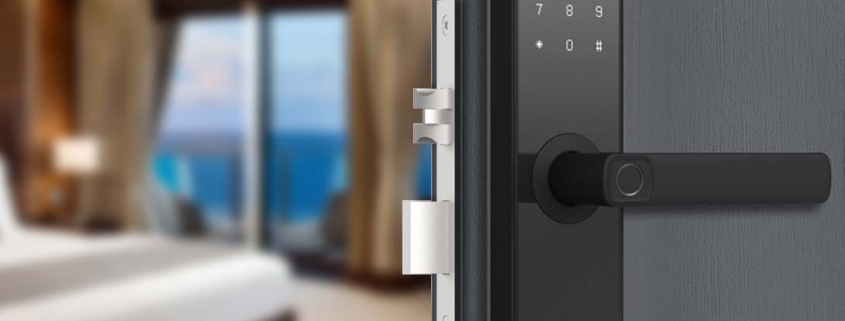What Kind of Locks Do Hotels Use?
If you’ve ever checked into a hotel, you’ve probably used a keycard to enter your room. But have you ever wondered—what kind of locks do hotels actually use?
Gone are the days of traditional metal keys. Today, hotels rely on high-tech electronic locks for better security and convenience. In this guide, we’ll break down the four most common types of hotel locks, how they work, and why hotels choose them.
By the end, you’ll know:
- The pros and cons of each lock type
- Which locks are the most secure
- Why some hotels still use old-fashioned keys
- The future of hotel room access (hint: your phone might replace keycards!)
Let’s dive in.
1. Traditional Metal Keys (Rare, But Still Used in Some Hotels)
How They Work:
- Classic cut-metal keys inserted into a mechanical lock.
- Mostly found in older motels, boutique inns, or historic hotels.
Pros:
No batteries or electronics needed
Cheap to replace (but not ideal for large hotels)
Cons:
Easy to lose or duplicate
No audit trail (hotels can’t track who enters a room)
Requires rekeying if a key is lost
Why Some Hotels Still Use Them: A few small lodgings keep them for nostalgia or cost savings, but most have upgraded to electronic systems.
2. Magnetic Stripe Keycard Locks (The Older Standard)
How They Work:
- Uses a black magnetic stripe (like a credit card).
- Guests swipe the card to unlock the door.
Pros:
More secure than metal keys (cards can be reprogrammed)
Allows for check-in/check-out tracking
Cons:
Cards wear out or demagnetize (annoying for guests)
Slower than RFID (must swipe correctly)
Less secure than modern options (can be copied with a skimmer)
Where You’ll Find Them: Many mid-range hotels built before 2010 still use these, but they’re being phased out.
3. RFID Keycard Locks (The Most Common Today)
How They Work:
- Uses radio-frequency identification (RFID) technology.
- Guests tap or hover the card near the lock (no swiping needed).
Pros:
Faster & more convenient (just tap and go)
More durable (no stripe to scratch)
Harder to copy than magnetic stripe cards
Remote deactivation (if a guest loses a card)
Cons:
Slightly more expensive than magnetic locks
Still requires a physical card (which can be lost)
Where You’ll Find Them: Most modern hotels, including chains like Marriott, Hilton, and Hyatt.

4. Mobile Key & Smartphone-Enabled Locks (The Future)
How They Work:
- Guests unlock doors via Bluetooth or Wi-Fi using their smartphone.
- Some systems also allow smartwatch or wearable access.
Pros:
No physical keycards needed
Remote check-in/check-out
Highest security (encrypted digital keys)
Integration with hotel apps (keyless entry, room service, etc.)
Cons:
Requires guest tech-savviness
More expensive for hotels to install
Where You’ll Find Them: Upscale hotels & tech-forward brands (e.g., Marriott Bonvoy, W Hotels, and some Hilton properties).
Bonus: Biometric Locks (Rare but Growing)
A few luxury hotels and high-security resorts are testing:
- Fingerprint scanners
- Facial recognition
- Voice-activated entry
Pros:
Ultra-secure (no keys or cards to lose)
VIP guest personalization
Cons:
Expensive to install
Privacy concerns for some travelers
Why Don’t All Hotels Use the Same Locks?
Hotels choose locks based on:
- Budget (RFID is affordable for most; mobile keys cost more)
- Guest expectations (luxury hotels invest in high-tech options)
- Security needs (resorts may prioritize biometrics)
Which Hotel Lock Is the Most Secure?
Ranked from least to most secure:
- Traditional metal keys (easiest to copy)
- Magnetic stripe cards (can be skimmed)
- RFID keycards (encrypted, harder to hack)
- Mobile keys (best encryption, no physical theft risk)
- Biometric locks (nearly impossible to fake)
The Future of Hotel Locks
Expect to see:
- More smartphone-based keys (Apple Wallet & Google Pay integration)
- Voice-controlled room entry (“Alexa, unlock my door”)
- Facial recognition at luxury resorts
Final Thoughts: What This Means for Travelers
- Most hotels now use RFID (tap-to-enter cards).
- High-end hotels are moving to mobile keys (your phone = your key).
- Always report lost keycards—they can be deactivated instantly.
Do you prefer keycards or smartphone entry? Let us know in the comments!









